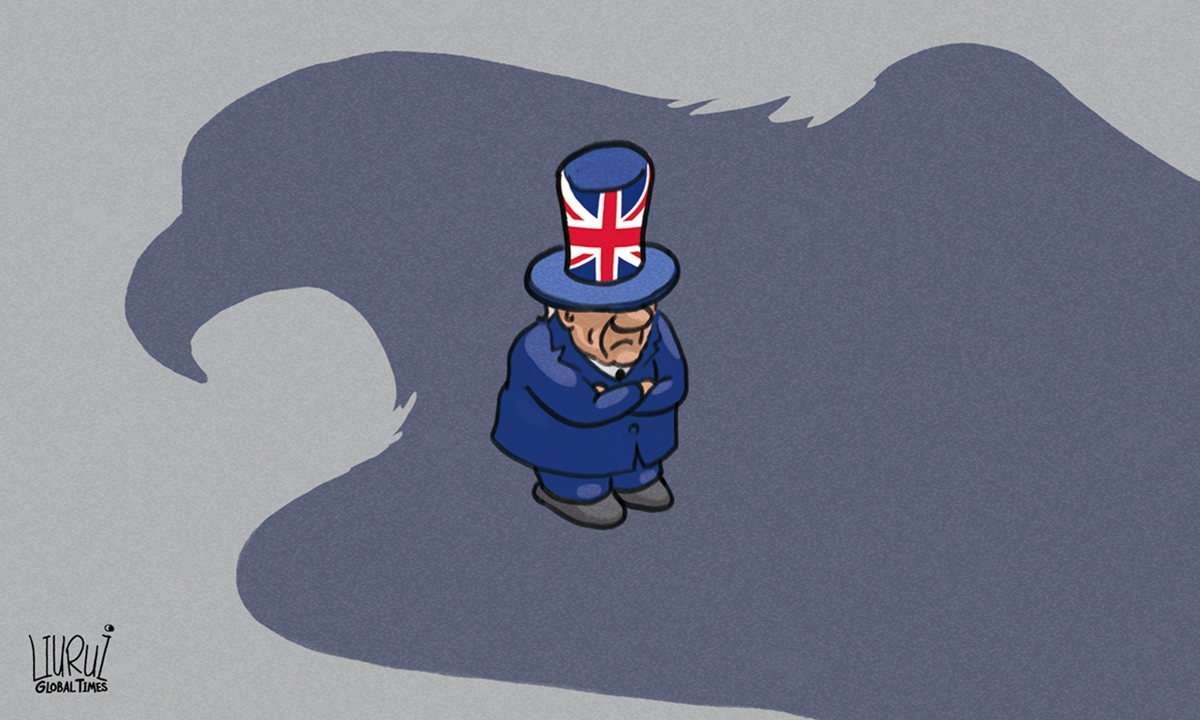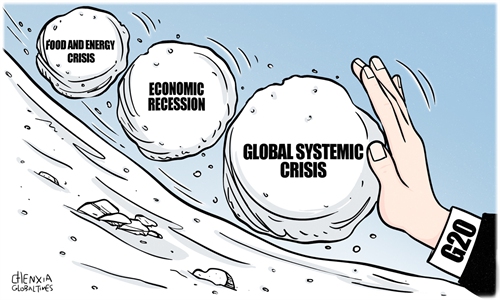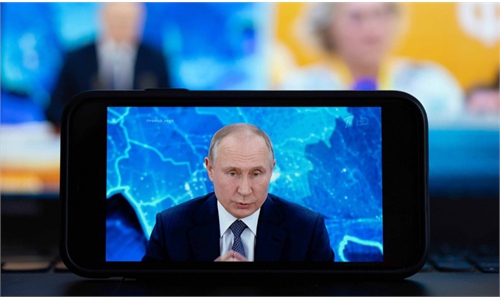
Illustration: Liu Rui/GT
A spokesperson for the UK's Foreign, Commonwealth and Development Office said over the weekend that "Russia has no moral right to sit at the G20." This prompted the Russian Embassy in London to respond by declaring that "We consider such statements especially hypocritical after the UK, together with NATO allies, discredited itself by actively participating in illegal and aggressive military campaigns in Yugoslavia, Iraq, Libya and Syria, as well as in other countries of the Middle East and Africa."The Kremlin's perspective on this dispute is factually correct since it's indeed the case that the US-led West hypocritically threw morality to the wind in the several infamous examples that were shared. Those Western countries are not in a position to engage in moral disputes, let alone regarding participation in the G20. That global organization is focused on economic pragmatism, not moral proselytism.
The G20 emerged from the 2008 financial crisis as a means for coordinating relevant policy for the purpose of supporting the global economic recovery that was in everyone's interests. Its members are extremely diverse and include the BRICS countries (Brazil/Russia/India/China/South Africa), Germany, Indonesia (which hosts this November's G20 gathering), Mexico, and Saudi Arabia, among others. Quite clearly, countries with very different traditional concepts of morality are represented in the G20.
The reason why this group has thus far functioned effectively is because its members have focused exclusively on economic pragmatism in pursuit of their shared interests, wisely realizing that any efforts at moral proselytization would doom the G20 to dysfunction. For instance, what's considered socially acceptable in Saudi Arabia isn't the same as it is in the US, and those two long-time strategic partners would lose all chances of cooperation if one began to aggressively impose their views onto the other.
That's not to deny that the US sometimes publicly disagrees with some of the morally driven socio-legal standards upheld by its various partners across the world, but just that it hasn't crossed the Rubicon in going so far as to make its contrarian views the centerpiece of their relations and thus sabotage their opportunity for engaging in mutually beneficial cooperation as a result. The UK generally follows its former colony's lead, so it's unclear why it's bucking this trend to provoke problems with Russia.
Some educated guesses can nevertheless be made for helping observers better understanding the UK's strategic calculations in this respect. First, nobody should lose sight of the fact that British Foreign Secretary Liz Truss is leading the Tory leadership race by a whopping 32 points according to an exclusive Sky News poll that was published last week. One of the primary appeals that she has is her rigid and uncompromising stance toward Moscow, which some have compared to the late Margaret Thatcher's.
The above insight suggests that her office's latest statement is intended mostly for domestic political consumption and isn't meant to be taken seriously by the international community. Be that as it may, another educated guess connected to that provocative comment and which isn't mutually exclusive to the aforementioned theory is that this is also part of the UK's post-Brexit push to restore its lost influence in foreign affairs by presenting itself as a Western leader in the soft power sense.
The third interpretation of the UK's hypocritical comments about Russia is that it's deliberately trying to divide the G20 for reasons that can only be speculated upon but might either be its own prerogative or a favor for the US. In any case, this theory also isn't mutually exclusive to the two that came before it, with the reality possibly even being a blend of all three. To put another way, domestic, soft power, and strategic reasons may all be behind what London just said about Russia and the G20.
Returning back to the larger topic at hand, this group of the world's 20 largest economies is just as important this year as it was at its inception. Globalization is under severe threat as a result of the systemic consequences caused by Russia's special military operation in Ukraine and the US-led West's unprecedented sanctions in response. For this reason, it's imperative that the G20 remains united ahead of November's Bali summit and that none of its members take Britain's latest divisive rhetoric seriously.
The author is a Moscow-based American political analyst. opinion@globaltimes.com.cn


